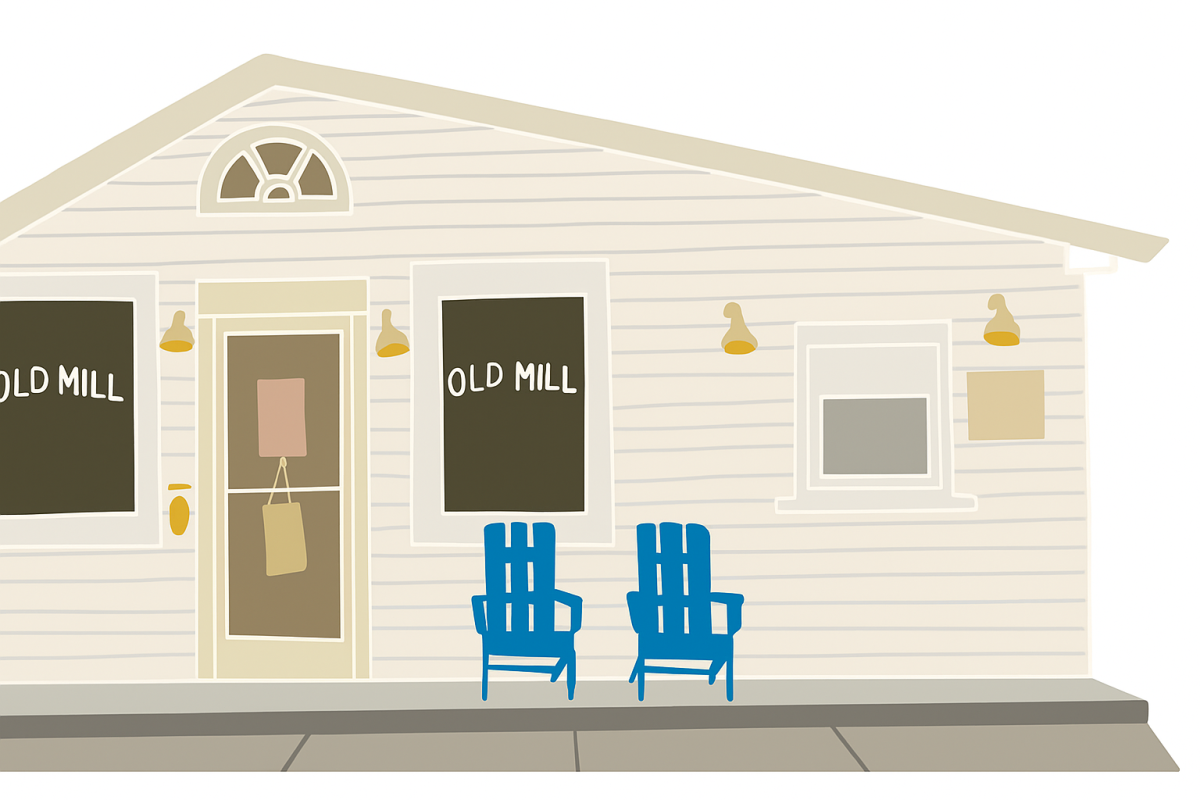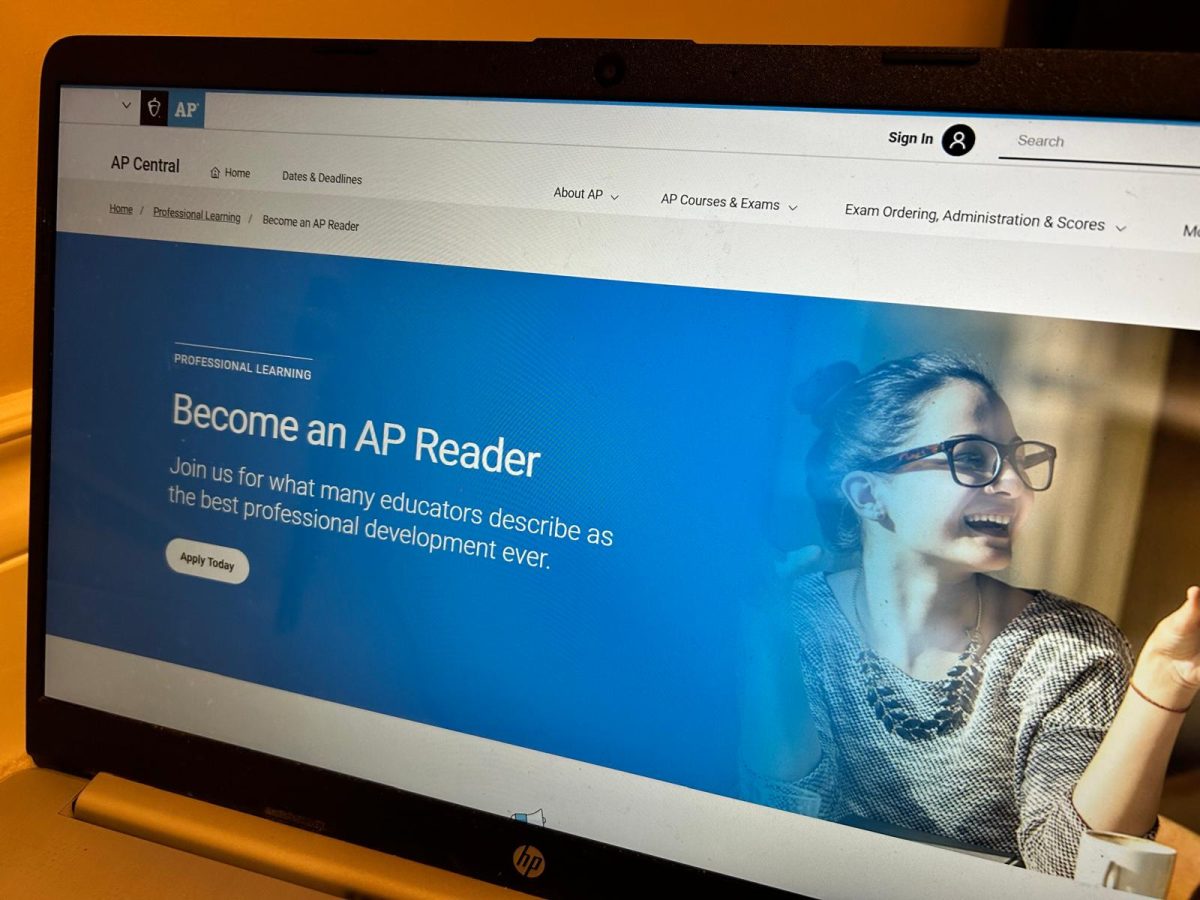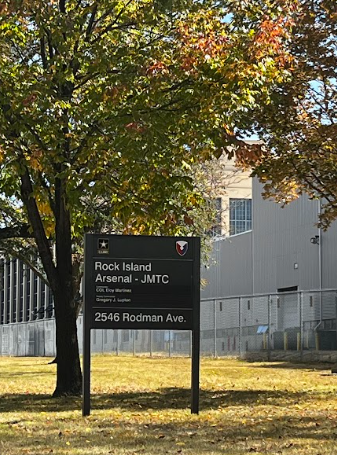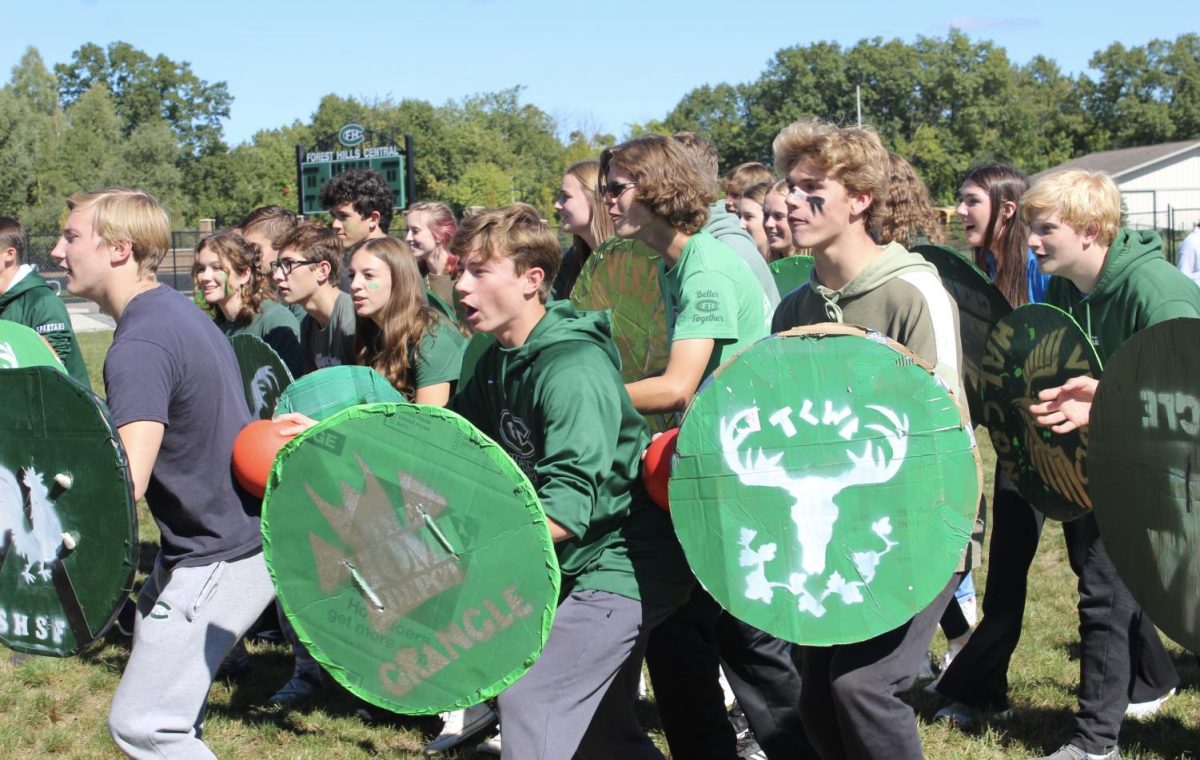The College Board, the nonprofit behind Advanced Placement (AP) classes, has colonized most high schools across the country. And, as any FHC student would know, Ranger Country is no different.
During FHC’s period of building renovation, a similar reconstruction is occurring in the curriculum. Whereas AP classes used to be primarily for upperclassmen, freshmen and sophomores are increasingly able to take the college-level courses.
AP World History: Modern—one of FHC’s most popular AP courses—is now available for freshmen. Formerly, the class was taken by most students in their junior year.
This grade-level shift undoubtedly stirs up questions of academic difficulty. AP World teacher Brad Anderson, whose name is practically synonymous with the course itself, takes into consideration that this is many freshmen’s first AP course.
“Last year’s freshmen [in AP World] did exceptionally well,” Anderson said. “We had a great group of freshmen. [The] 65 kids bought in [to the class], and they did really well in the course and on the test. Now that I have the majority of the freshmen class, it’s going to be really interesting to see how they do. I’ve changed a little bit [of the curriculum]—but not much. But, I am teaching it with it in mind that they were only in middle school a few months ago.”
In past years, the majority of the junior class has opted to take AP World History over its non-AP counterpart. While history itself has an appeal, the games Anderson integrates into the curriculum are considered tradition for students.
At the beginning of the school year, Anderson teaches about historical world regimes through the giant outdoor game “Age of Empires.” Teams seek glory for their kingdoms with dodgeballs and cardboard shields, culminating in a final battle on the football field.
Even though the College Board designs a standardized curriculum, projects like Age of Empires showcase how unique projects can be integrated into the advanced courses. Anderson’s creative ways of teaching are a result of his own formulaic world-history education at FHC in the 1990s. He now nuances the necessary lectures, notes, and tests with the interactive aspects that he didn’t experience as a high schooler.
“The growth of AP World has been largely due to what I would say is a unique teaching strategy,” Anderson said. “I’m a project-based teacher—part of the year. A lot of what I do is very traditional and would look very familiar to regular AP World History classes. But, I also use a variety of project-based learning styles and strategies that I believe are engaging, fun, and rewarding.”
While students are by no means forced to take AP courses, many choose to take at least one class by the time they graduate. For some upperclassmen, AP courses constitute their entire schedule.
FHC offers a breadth of AP courses for students—24 are possible to take out of the College Board’s 40. (Across the FHPS district, 29 are available.) The offerings are especially strong in math and science, though there exists an AP course in most academic departments. Teachers put immense effort into preparing students for each May AP exam, and FHC boasts a pass rate of 86%.
While teachers can pitch ideas for new courses to be brought to the school, classes are offered based on student demand. This past year, there was a decrease in requests for typical elective classes. Unsurprisingly, interest has risen for traditional core classes—such as Human Anatomy & Physiology—over electives like art.
FHC counselors Victoria Velding and Suzanne Jacoby share that multiple electives were either eliminated or are only offered for a single hour this school year.
“I think that there’s a lot of expectation that [students] put on themselves—or from [their] peers—that they need to take certain classes,” Velding and Jacoby said. “We have so many students who go to two or four year schools and want those selective schools. They feel that academics is the only way to showcase their strengths, so they take a lot of core classes and set themselves up for some pretty hard classes.”
FHC’s English curriculum is currently undergoing a transition similar to the social studies department. As of this school year, students have the opportunity to pursue a more advanced English track. Previously, an advanced English student could take Honors English 9 and Honors English 10 as an underclassman. This year, AP Seminar has moved from being a junior course to one for sophomores, replacing Honors English 10. The advanced English option for juniors will be primarily AP Language & Composition in the coming years.
However, the College Board is expanding its reach outside of just AP classes. 10th grade students at FHC who would have formally taken English 10 are now placed in Pre-AP English 2. This course is not an AP course, and the students do not take a final exam from the College Board. Rather, Pre-AP 2 prepares students for an eventual AP class, teaching them the necessary skills for success. (Read in-depth about the English curriculum changes here.)
Pre-AP 2 is correlated to Pre-AP English 1, its 9th-grade counterpart. Anthony Sultini, former English 10 teacher who is now piloting Pre-AP 2 at FHC, emphasizes the similarity between the classes.
“I see a lot of head nods [when] as I’m asking [Pre-AP 2 students], ‘Have you heard this before? Have you done this before?’,’” Sultini said. “They may not remember everything, but at least they’re familiar. And, from what I can see from both years, the curriculum is very similar.”
The skills stressed in both levels are rhetorical devices, supporting claims with logic, and argumentative writing, reading, and speaking. While doubtlessly promoting important skills, the curriculum leaves out an integral aspect of English classes—reading books.
Instead of novels, students read excerpts and short stories. This, predictably, trains students for the types of questions asked on AP English exams and the SAT reading section. Similar to Anderson, Sultini has worked to supplement the College Board’s curriculum. Pre-AP 2 students will read The Great Gatsby, Of Mice and Men, and The Crucible, all American literature staples from English 10.
While he’s working with the curriculum changes, Sultini recognizes what’s at stake when trying to place all students on the AP pathway.
“I think the push in our district is to be able to say, ‘Hey, we have a huge population of our students that want to take AP-level courses,’” Sultini said. “And, I’ll kind of go off the road here—I think that’s a problem. It’s okay if you don’t want to go to college. We have [the Kent Career Tech Center] right down the road. It’s okay if somebody wants to go learn a trade or a skill. They’ll do just fine. There was a title at the beginning—I don’t know if it was just something someone had made up, or if it was actually a title they were thinking [to use]—and it was called ‘AP for All.’ And that’s unfair. Not everybody is on the AP track, and that’s okay.”
Pre-AP 2 students are by no means forced to take an AP English class as an upperclassman. The option of English 11 remains, in addition to a few senior English courses.
However, one could raise the argument that these students are being “herded” into taking AP classes. The counselors stress that a choice of course is ultimately a decision for the student, with teacher input.
“We don’t push APs at all,” Velding and Jacoby said. “We leave it more to the teachers to—not necessarily recruit—but to let kids know what they’re going to experience in a class and what would be an appropriate path for them. I don’t think that there’s ever an expectation [that a student who takes an AP class during their earlier years of high school will go on to take more AP classes later in high school]. They can be in AP Seminar as a sophomore and decide, ‘I don’t want to be in [AP Language & Composition] next year,’ and that’s fine.”
If Pre-AP 2 students wish to take AP English courses as an upperclassmen, they will be placed in AP Language & Composition as a junior followed by AP Literature & Composition as a senior. The latter has already experienced a rise in popularity, and this trend will likely persist in the coming years.
Pre-AP provides a sampling of what an AP class is like, ideally showing students that they could thrive in the college-level courses, should that be their goal.
“I think on the silver side of it, the district is at least thinking the right way to say, ‘Listen, if we give [students] a taste [of AP], maybe that’ll open their eyes, and maybe they can start getting confidence and feel like they can [take an AP class],’” Sultini said. “I’ll side with the district on that aspect, but it does concern me that we’re pushing a lot of AP classes.”
The Pre-AP 2 curriculum is allowing for the expansion of an opportunity formerly limited to Honors English 10 students: FHC Inspires. The one-night event allows select sophomores to present their own TED Talks, expanding the audience’s perspectives through personal stories and informational lessons. (Before this year, schedule differences prevented Non-Honors 10 students from participating.)
This year, Sultini plans to keep the tradition alive with Pre-AP 2 students. It’s uncertain whether AP Seminar students will have the same opportunity, but the hope is that the experience will be a possibility for all sophomores.
FHC’s curriculum changes—in social studies, English, and other departments—are trending toward AP. The advanced classes undoubtedly offer new learning opportunities, but it’s important to evaluate the extent to which FHC is following the College Board.
Despite some uncertainty, Sultini and other instructors are working to make the school’s learning environment one of success and enjoyment.
“I want [my students] to see the confidence within me, but I also want them to see the vulnerability,” Sultini said. “I’ve taught for [about] 20 years between two districts, and for the majority of those years, American Literature [English 10] has been my thing, right? And, now I’m having to hit the reset button. They’re going to see me struggle at times, which I think makes them feel that I’m human. I’m excited and a little scared at the same time.”
This story was originally published on The Central Trend on September 8, 2025.



































